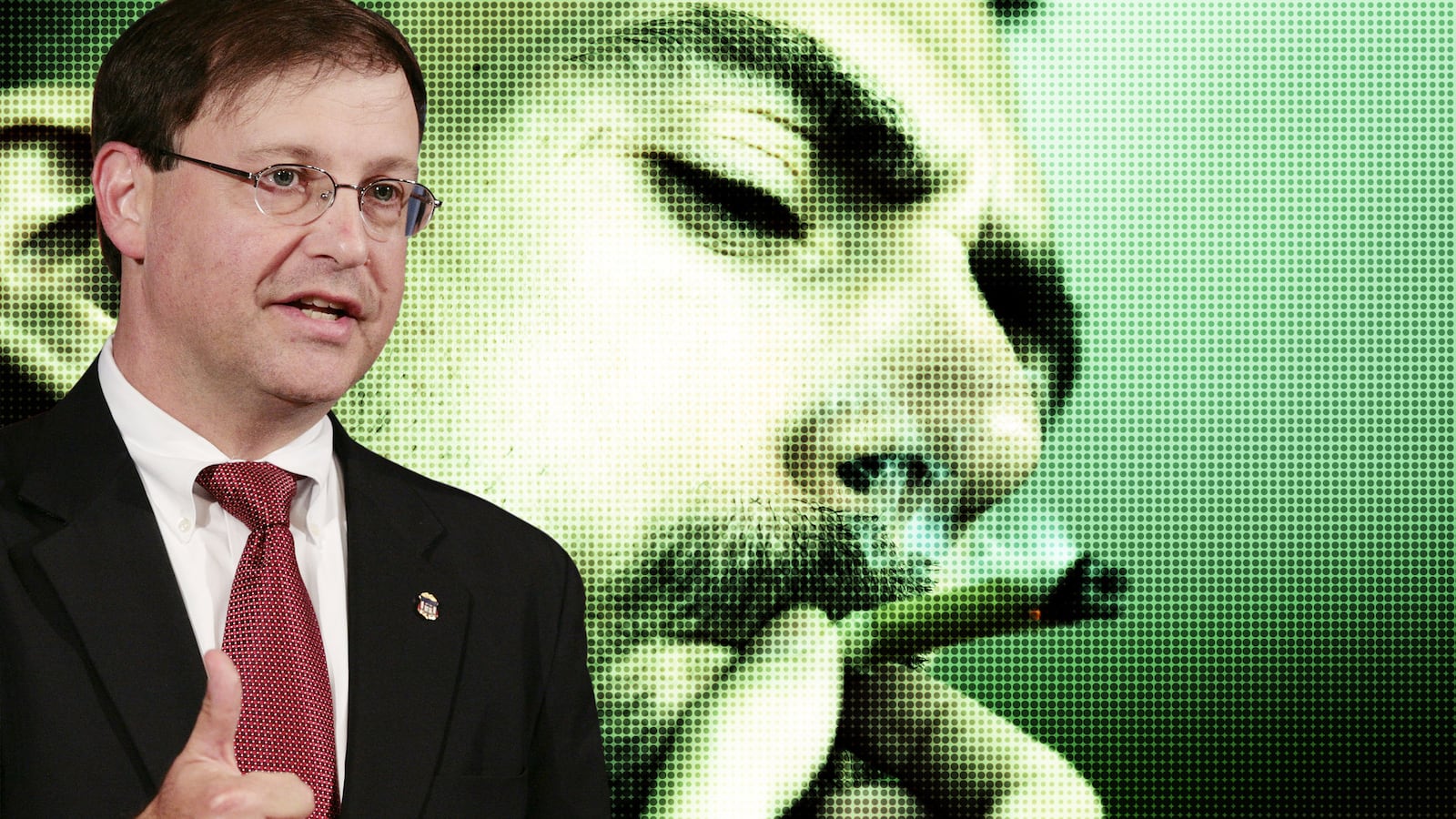The DEA has been generating a lot of buzz these last few weeks: scandalous reports. Administrator Michele Leonhart leaving her post. And now Chuck Rosenberg, chief of staff to FBI Director James B. Comey, taking the helm.
But while Rosenberg is expected to overhaul the troubled agency’s management practices, don’t count on any shakeup in drug policy. The media and activists alike have been reporting that Rosenberg will spend less time on marijuana enforcement and instead look to “improve the DEA’s procedures on classifying, declassifying, and reclassifying drugs,” but when it comes to drug law enforcement, actions speak louder than words. Eric Holder once famously said the Department of Justice, the DEA’s parent organization, would leave state law-abiding medical marijuana dispensaries alone, yet he continued to conduct raids.
Phil Smith, editor of the Drug War Chronicle and a longtime drug policy observer, questions whether replacing the head of the organization will result in meaningful change. “The DEA has a well-entrenched culture,” he notes. “Replacing the head of the agency doesn’t make that go away. How aggressive is he going to be about reforming the agency?”
Rosenberg, who has a long résumé with the Department of Justice, serving as U.S. attorney for the Eastern District of Virginia and the Southern District of Texas, “has an extensive background in law enforcement and prosecution,” says Smith. The new DEA chief also has “great familiarity in drug prosecution and immigrant prosecution” because of his work in Texas, Smith adds.
(Full disclosure: Smith is a former colleague and friend in drug policy reform.)
The head of the DEA does have the ability to reject petitions to reschedule drugs as less dangerous, Smith acknowledges. Under the Controlled Substances Act, marijuana is now classified as a Schedule I drug, with a “high potential for abuse” and “no currently accepted medical use.” Other Schedule I drugs include GHB and LSD.
“The head of the DEA has the ability to look at any rescheduling petition and say ‘No.’ You can appeal that, and you’ll lose,” Smith says. “That’s historically been the case. A rescheduling petition could come up and he could agree, and reschedule [marijuana]. But it could take a couple of years at least, even if there’s no obstruction.”
While many in drug policy reform beat the drum for rescheduling marijuana into Schedule II, and arguably that could be good for medical marijuana research and patients, Smith said he has some problems with rescheduling.
“If you put it in Schedule II, that’s the same class as Oxycontin. You’ll still get arrested, like you do for Oxycontin when you don’t have a prescription,” he says.
“Personally, I think [marijuana] ought to be de-scheduled,” he adds. “It should be like an herbal supplement, not a drug. It should be removed from the schedule of controlled substances.” That, he says, would both permit much needed medical research while providing safety for recreational users.
In addition, while it’s been reported that Rosenberg will focus the DEA’s resources less on marijuana, Smith points out that the vast majority of marijuana arrests happen at the local level: “Even if we ended federal drug prohibition entirely, we’d still have state cops seeking to bust people under their local laws.”
What’s more, “To the degree that he de-emphasizes marijuana law enforcement, and the degree [the DEA] keeps the same budget, that means those resources will be directed to other drugs and their users,” he says.
That’s not necessarily the best use of resources for the public’s health, he says: “What we ought to be thinking about is how we can abolish the DEA.”
“It’s a Nixonian aberration,” he adds. “It’s only been around 40 years. Its functions can easily be handled by other agencies. I think it’s been proven over the decades that it’s both inimical to scientific policy and that it’s hopelessly corrupt and scandalous. You can go back year after year, administrator after administrator, and these scandals of abuse—and even murder—continue.”
“Abolish the DEA,” says Smith, “and let this guy go out and earn an honest living.”






